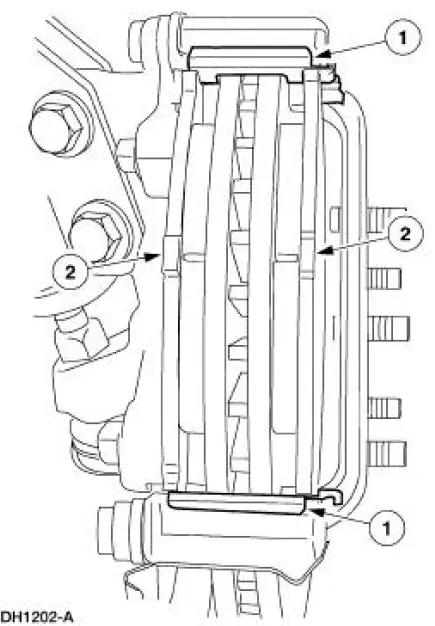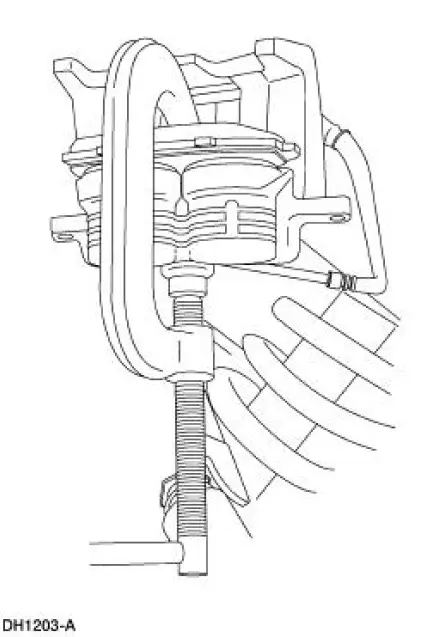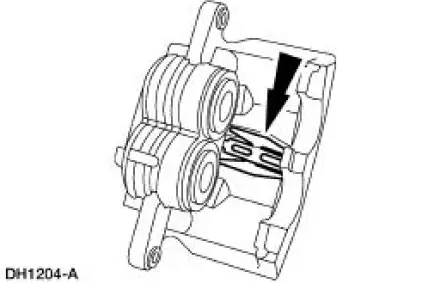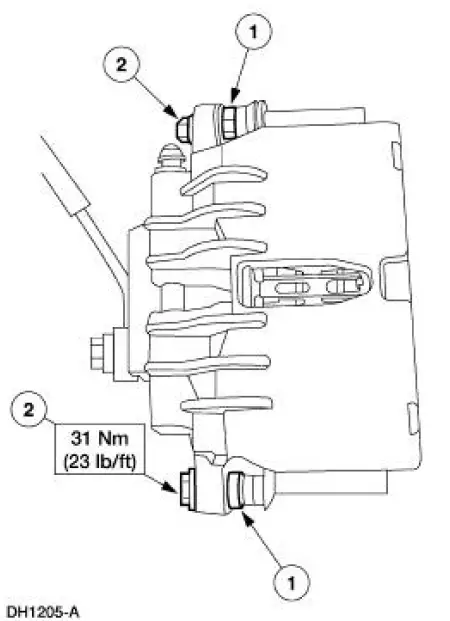Ford Mustang (1999-2004) Service Manual: Installation
1. CAUTION: Do not allow grease, oil, brake fluid or other contaminants to contact the pad lining material. Do not install contaminated pads.
NOTE: Install all hardware supplied with pad kits.
Install the pads.
1. Install the new pad slippers.
2. Install the pads.

2. NOTE: Use a wood block or used pad to protect pistons and boots.
Compress the caliper pistons (2196).

3. Make sure the anti-rattle spring is correctly positioned in the caliper.

4. CAUTION: Use care not to damage the bleeder screw or front brake disc shield.
Install the disc brake caliper.
1. Hold the guide pins stationary.
2. Install the caliper bolts.

5. Install the wheel and tire assembly.
6. Lower the vehicle.
7. Fill the brake master cylinder reservoir with clean High Performance DOT 3 Brake Fluid C6AZ- 19542-AB or equivalent DOT 3 fluid meeting Ford specification ESA-M6C25-A. Install brake master cylinder filler cap.
8. Inspect brake operation.
 Removal
Removal
1. Remove brake master cylinder filler cap (2162). Check brake fluid
level in brake master cylinder
reservoir (2K478). Remove fluid until brake master cylinder reservoir is
half full.
2. Ra ...
 Brake Pads - Cobra
Brake Pads - Cobra
Removal
1. Remove brake fluid in the master cylinder reservoir until the
reservoir is half full.
2. Raise and support the vehicle.
3. Remove the tire and wheel assembly.
4. CAUTI ...
Other materials:
Component Tests
Drive Belt Noise/Flutter
Drive belt chirp occurs due to pulley misalignment or excessive pulley runout.
It can be the result of a
damaged pulley or an incorrectly aligned pulley.
To correct, determine the area where the noise comes from. Check each of the
p ...
Air filter check
WARNING: To reduce the risk of vehicle damage and or
personal burn injuries, do not start your engine with the air
cleaner removed and do not remove it while the engine is running.
Note: Failure to use the correct air filter element may result in
severe
engin ...
Creating a MyKey
Use the information display to create a MyKey.
For Type 1 information displays:
1. Insert the key you want to program into the ignition.
2. Switch the ignition on.
3. Access the main menu within the information display, and press
SETUP using the information d ...
